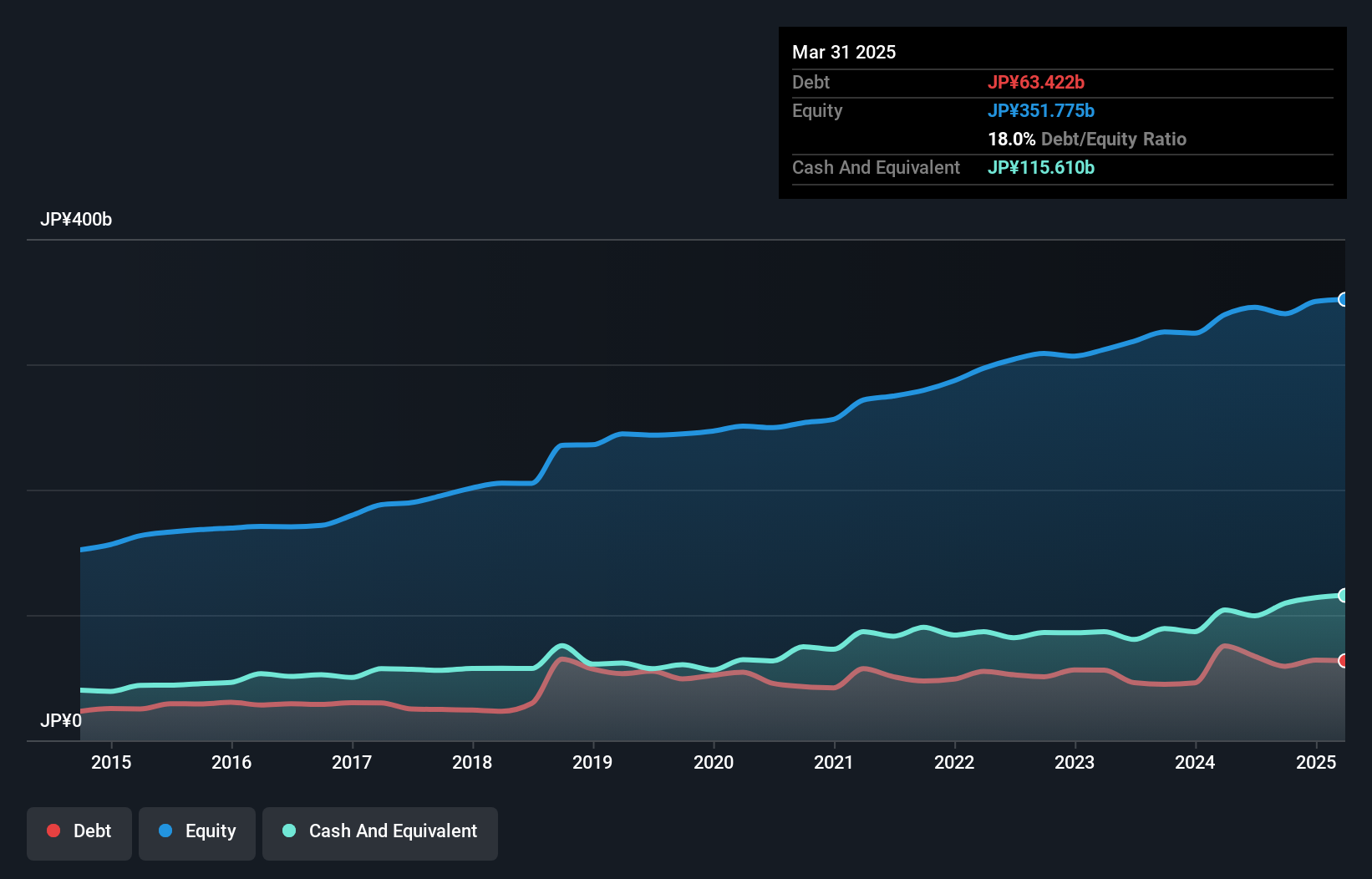Some say volatility, rather than debt, is the best way to think about risk as an investor, but Warren Buffett famously said that 'Volatility is far from synonymous with risk.' It's only natural to consider a company's balance sheet when you examine how risky it is, since debt is often involved when a business collapses. As with many other companies Adeka Corporation (TSE:4401) makes use of debt. But should shareholders be worried about its use of debt?
When Is Debt A Problem?
Debt and other liabilities become risky for a business when it cannot easily fulfill those obligations, either with free cash flow or by raising capital at an attractive price. In the worst case scenario, a company can go bankrupt if it cannot pay its creditors. However, a more common (but still painful) scenario is that it has to raise new equity capital at a low price, thus permanently diluting shareholders. Of course, the upside of debt is that it often represents cheap capital, especially when it replaces dilution in a company with the ability to reinvest at high rates of return. The first step when considering a company's debt levels is to consider its cash and debt together.
What Is Adeka's Net Debt?
As you can see below, Adeka had JP¥63.4b of debt at March 2025, down from JP¥75.3b a year prior. However, its balance sheet shows it holds JP¥115.6b in cash, so it actually has JP¥52.2b net cash.

A Look At Adeka's Liabilities
According to the last reported balance sheet, Adeka had liabilities of JP¥122.2b due within 12 months, and liabilities of JP¥69.1b due beyond 12 months. Offsetting this, it had JP¥115.6b in cash and JP¥108.7b in receivables that were due within 12 months. So it actually has JP¥32.9b more liquid assets than total liabilities.
This short term liquidity is a sign that Adeka could probably pay off its debt with ease, as its balance sheet is far from stretched. Simply put, the fact that Adeka has more cash than debt is arguably a good indication that it can manage its debt safely.
View our latest analysis for Adeka
And we also note warmly that Adeka grew its EBIT by 16% last year, making its debt load easier to handle. The balance sheet is clearly the area to focus on when you are analysing debt. But it is future earnings, more than anything, that will determine Adeka's ability to maintain a healthy balance sheet going forward. So if you want to see what the professionals think, you might find this free report on analyst profit forecasts to be interesting.
Finally, a company can only pay off debt with cold hard cash, not accounting profits. Adeka may have net cash on the balance sheet, but it is still interesting to look at how well the business converts its earnings before interest and tax (EBIT) to free cash flow, because that will influence both its need for, and its capacity to manage debt. In the last three years, Adeka's free cash flow amounted to 46% of its EBIT, less than we'd expect. That's not great, when it comes to paying down debt.
Summing Up
While we empathize with investors who find debt concerning, you should keep in mind that Adeka has net cash of JP¥52.2b, as well as more liquid assets than liabilities. And we liked the look of last year's 16% year-on-year EBIT growth. So is Adeka's debt a risk? It doesn't seem so to us. Given Adeka has a strong balance sheet is profitable and pays a dividend, it would be good to know how fast its dividends are growing, if at all. You can find out instantly by clicking this link.
At the end of the day, it's often better to focus on companies that are free from net debt. You can access our special list of such companies (all with a track record of profit growth). It's free.
New: Manage All Your Stock Portfolios in One Place
We've created the ultimate portfolio companion for stock investors, and it's free.
• Connect an unlimited number of Portfolios and see your total in one currency
• Be alerted to new Warning Signs or Risks via email or mobile
• Track the Fair Value of your stocks
Have feedback on this article? Concerned about the content? Get in touch with us directly. Alternatively, email editorial-team (at) simplywallst.com.
This article by Simply Wall St is general in nature. We provide commentary based on historical data and analyst forecasts only using an unbiased methodology and our articles are not intended to be financial advice. It does not constitute a recommendation to buy or sell any stock, and does not take account of your objectives, or your financial situation. We aim to bring you long-term focused analysis driven by fundamental data. Note that our analysis may not factor in the latest price-sensitive company announcements or qualitative material. Simply Wall St has no position in any stocks mentioned.
About TSE:4401
Flawless balance sheet with solid track record and pays a dividend.
Similar Companies
Market Insights
Community Narratives



